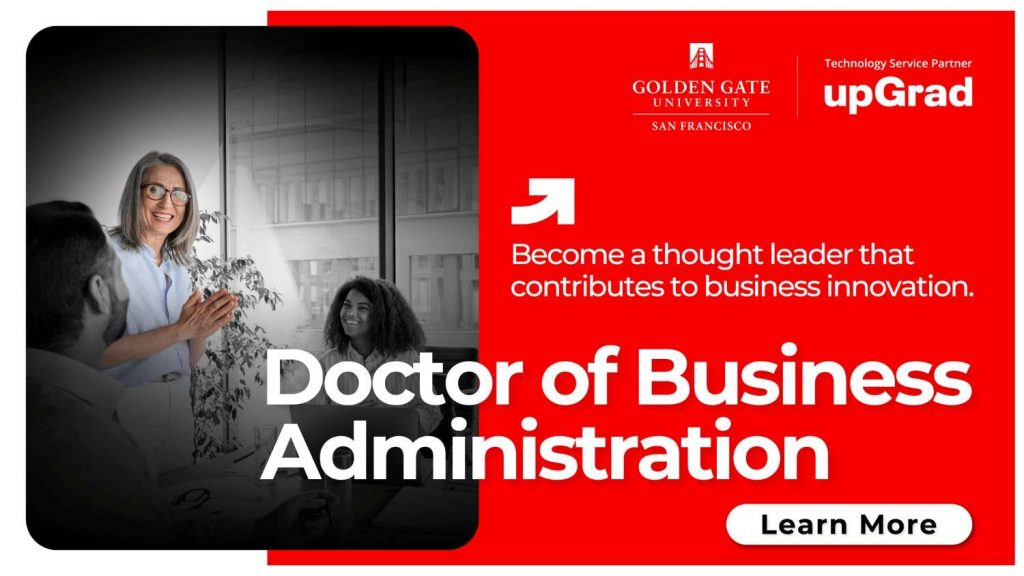The rapidly evolving corporate landscape in Singapore is gradually blurring the lines of distinction between two compelling positions of authority: CEO and Managing Director. With the global expansion of organizations in Singapore and their adoption of agile leadership models, it becomes increasingly crucial to understand who exactly holds more power in 2025–26.
More so when it isn’t just about titles, but about strategy, influence, and authority, both roles may sound and appear similar, but they vary considerably on various factors. This blog helps you take a closer look at the distinguishing aspects of CEOs and MDs in Singapore, helps you discover “MD or CEO: Which is higher?”, and enables you to make an informed decision on your career progression to senior leadership roles.
Who Is a Chief Executive Officer (CEO) and What Are Their Roles and Responsibilities?
In Singapore, a CEO is the highest-ranking executive of an organization. They report directly to the Board of Directors and are responsible for the overall strategic direction and management of a company.
Their main roles and responsibilities are:
- Setting Strategy and Vision
- Operational Oversight
- Financial Performance Management
- Team Building and Leadership
- Accountability and Corporate Governance
- Risk Management
- Stakeholder Communication and Public Representation
CEOs define the vision, long-term strategic goals, and mission of a company.
They oversee the daily operations of the company and ensure that all departments are aligned and efficient.
As opposed to a Chief Financial Officer (CFO) who just manages daily finances, a CEO is ultimately responsible for the financial health and resource allocation in the company. They drive its financial health as well.
CEOs build and foster senior leadership teams within organizations, including C-suite executives such as CFOs and Chief Operating Officers (COOs). This promotes a productive and positive corporate culture.
Who Is a Managing Director and What Are Their Roles and Responsibilities?
In Singapore, the title of a Managing Director is almost the same as that of a Chief Executive Director. They serve as the highest-ranking executives in organizations and are responsible for their overall operations, performance, and strategy.
Their key roles and responsibilities may be enumerated as follows:
- Strategic Planning and Direction
- Operational Oversight
- Financial Management
- Legal Compliance and Corporate Governance
- Talent Management and Leadership
- Public Representation and Stakeholder Relations
- Risk Management
Managing Directors in Singapore are responsible for formulating the organization’s long-term strategy & vision, and its annual business plans, and for driving them.
A core responsibility of a Managing Director is to oversee the daily operations of an organization across all departments.
Managing Directors manage the financial performance of organizations, including budgeting, resource allocation, and cost control.
Managing Directors also play a pivotal role in ensuring the company adheres to all legal, regulatory, and ethical requirements under the Code of Corporate Governance and the Singapore Companies Act.
CEO vs Managing Director: Key Differences Explained
The Singaporean corporate landscape of today is driven by positions of authority – titles that sound very similar, yet hold distinct roles and powers. Both CEOs and MDs work at the helm of affairs of any organization; however, their work reveals some distinguishing differences, which are tabulated below for your reference:
| Parameters | Chief Executive Officer (CEO) | Managing Director (MD) |
| Role Definition | Defines the overall strategy and vision of the company, and also gives its direction | Oversees everyday operations and practically executes the company’s strategy |
| Hierarchy | Highest rank among company executives | Works under the CEO, reporting to them or the Board of Directors (depending on organizational structure) |
| Focus | Business growth, direction, and partnerships with external sources | Strategy execution, operational efficiency, and internal management |
| Decision-Making | Final decision-making authority on strategic financial and operational issues | Decision-making power over everyday matters within stipulated guidelines |
| Scope of Authority | Much broader; oversee the working of the whole organization | Narrow focus; only responsible for managing internal operations and achieving defined goals |
1. Role Definition
The first distinguishing factor between the two top roles is the roles they perform. A CEO is responsible for defining and shaping the mission, vision, and long-term strategy of the company. They work toward aligning all departments to achieve common organizational goals.
The role of an MD, on the other hand, is more inclined towards ensuring the effective execution of these strategies set by the CEO. An MD is responsible for overseeing everyday operations, managing teams, and maintaining efficient organizational performance on a regular basis.
2. Hierarchy
Even at the hierarchical level, both roles are very different. According to the corporate hierarchical structure, the CEO is at the top as the highest-ranking executive. They directly report to the company’s Board of Directors.
A Managing Director, however, operates below the CEO, often reporting to them. In some organizations, however, both MDs and CEOs may hold equal rank.
Also read: Most In-Demand Jobs in Singapore
3. Focus
The focus of their work also differs considerably, with CEOs more inclined toward shaping the long-term vision and goals of the company. At the same time, an MD handles day-to-day business operations.
The CEO is responsible for the overall positioning of the company in the market and engaging in external partnerships to foster business growth, innovation, and secure the company’s future.
An MD, however, oversees internal performance and management. They are responsible for ensuring that the strategies defined by the company’s Board and CEO are implemented effectively across all departments.

4. Decision-Making
In terms of decision-making, the CEO generally has the final authority to shape the company’s long-term vision and goals. They are responsible for making high-impact decisions pertaining to partnerships, investments, and organizational change.
The Managing Director, on the other hand, focuses on implementing these strategies through everyday operational decisions. They are overall responsible for ensuring the alignment of everyday business activities with the company’s goals and the CEO’s vision.
Also read: Soft Skills That Will Make Your Resume Stand Out
5. Scope of Authority
A CEO generally has a broader scope of authority, as they oversee the company’s strategic vision, make major corporate decisions, and manage global operations. An MD’s scope of authority, on the other hand, focuses explicitly on internal operations only. They must ensure that the CEO’s strategies are effectively executed.
CEO vs Managing Director Salaries in Singapore: A Comparative Analysis
The following table compares the salaries of CEOs and Managing Directors in Singapore at different stages of their careers:
| Experience Level | CEO | Managing Director |
| 1-3 Years | SGD 24,000 – SGD 396,000 | SGD 60,000 – SGD 180,000 |
| 4-6 Years | SGD 66,000 – SGD 400,000 | SGD 72,000 – SGD 204,000 |
| 7-9 Years | SGD 96,000 – SGD 450,000 | SGD 100,000 – SGD 320,000 |
| 10-14 Years | SGD 100,000 – SGD 888,000 | SGD 100,000 – SGD 359,000 |
| 15+ Years | SGD 140,000 – SGD 60,00,000 | SGD 155,000 – SGD 400,000 |
Sources: Glassdoor, as of October 8, November 23, and December 17, 2024; April 20, May 3, June 10, September 29, October 17, and November 11 & 22, 2025
CEO vs Managing Director: Legal Distinctions in Singapore
The following are the primary legal distinctions between CEOs and Managing Directors in Singapore:
| Criterion | CEO | Managing Director |
| Board Membership | Need not necessarily be a director of the company. | Is formally appointed by the Board of Directors. |
| Source of Power | Power stems from their position and employment contract. | Power is entrusted formally by the Board of Directors. |
| Reporting Line | Report to the Board of Directors. | Report to either the Board of Directors or the CEO depending on the organizational hierarchy. |
Skills and Qualities that Define Successful CEOs and Managing Directors
The role of a CEO and MD is that of senior leadership, and to succeed in such roles, it is essential to have a blend of strategic abilities and personal strengths. These include prompt decisiveness, strategic thinking, and effective communication, among others.
Listed below are some of the top skills and qualities that define the persona of a successful CEO and MD in the corporate sector:
1. Operational Skills:
- Strategic decision-making: The ability to make prompt decisions confidently
- Adaptability: Responding to changes in the workplace, specific situations, or evolving technologies in the industry
- Effective delegation: The ability to assign tasks wisely and oversee that productivity is maximized and all resources are utilized effectively towards the achievement of common goals
2. Leadership Traits:
- Empathy: An understanding of the employees’ point of view and a sense of connection with them
- Accountability: Taking responsibility for their actions and the overall outcomes of the organization
- Confidence: Ability to find solutions to any challenge/problem, and stay focused and enthusiastic to pursue organizational goals
Also read: 5 In-Demand Technical Skills in Singapore
How upGrad Helps You Advance Toward Executive Leadership Roles
Ready to advance to senior leadership roles in your career? Upskill at ease with top online management and leadership programs offered by leading international universities on upGrad. These courses are designed to enable professionals to advance their knowledge and leadership skills through various specialized programs, such as:
- Master of Business Administration (MBA) from Edgewood University
- MBA to DBA Pathway by Golden Gate University
- Doctor of Business Administration (DBA) by Rushford Business School
Must read articles:
- Top Product-Based Companies to Work for in Singapore
- Top 12 Benefits of Networking: Why Networking is Important
- Top 10 Recruitment Agencies in Singapore 2026
- Highest-Paying Jobs Without a Degree in Singapore
- How to Find a Job in Singapore
🎓 Explore Our Top-Rated Courses in Singapore
Take the next step in your career with industry-relevant online courses designed for working professionals in Singapore.
- DBA Courses in Singapore
- Data Science Courses in Singapore
- MBA Courses in Singapore
- Master of Education Courses in Singapore
- AI ML Courses in Singapore
- Digital Marketing Courses in Singapore
- Product Management Courses in Singapore
- Generative AI Courses in Singapore
FAQs on CEO vs Managing Director
The key difference lies in the role and scope of authority of each of these positions. A CEO is responsible for the overall strategy and achievement of the company’s goals. At the same time, an MD carries out everyday business activities in alignment with the CEO’s vision to achieve these goals.
The exact salary figures may vary from one professional to another. However, the average annual salary of a CEO in Singapore is estimated to be in the range of SGD 232,770 to SGD 503,000 per annum. An MD, on the other hand, earns an average annual salary of SGD 120,000 to SGD 373,000.
An MBA is generally one of the most preferred academic credentials among Singaporean employers seeking to fill senior leadership positions, such as those of a CEO or MD.
Some of the key industries where CEOs and MDs in Singapore are in high demand include:
1. IT and Technology
2. Healthcare
3. Finance and Fintech
4. Consulting
5. Manufacturing and Supply Chain
The advanced degree programs on upGrad are designed to empower senior professionals in Singapore to assume top management roles by equipping them with specialized skills and knowledge in these areas.








